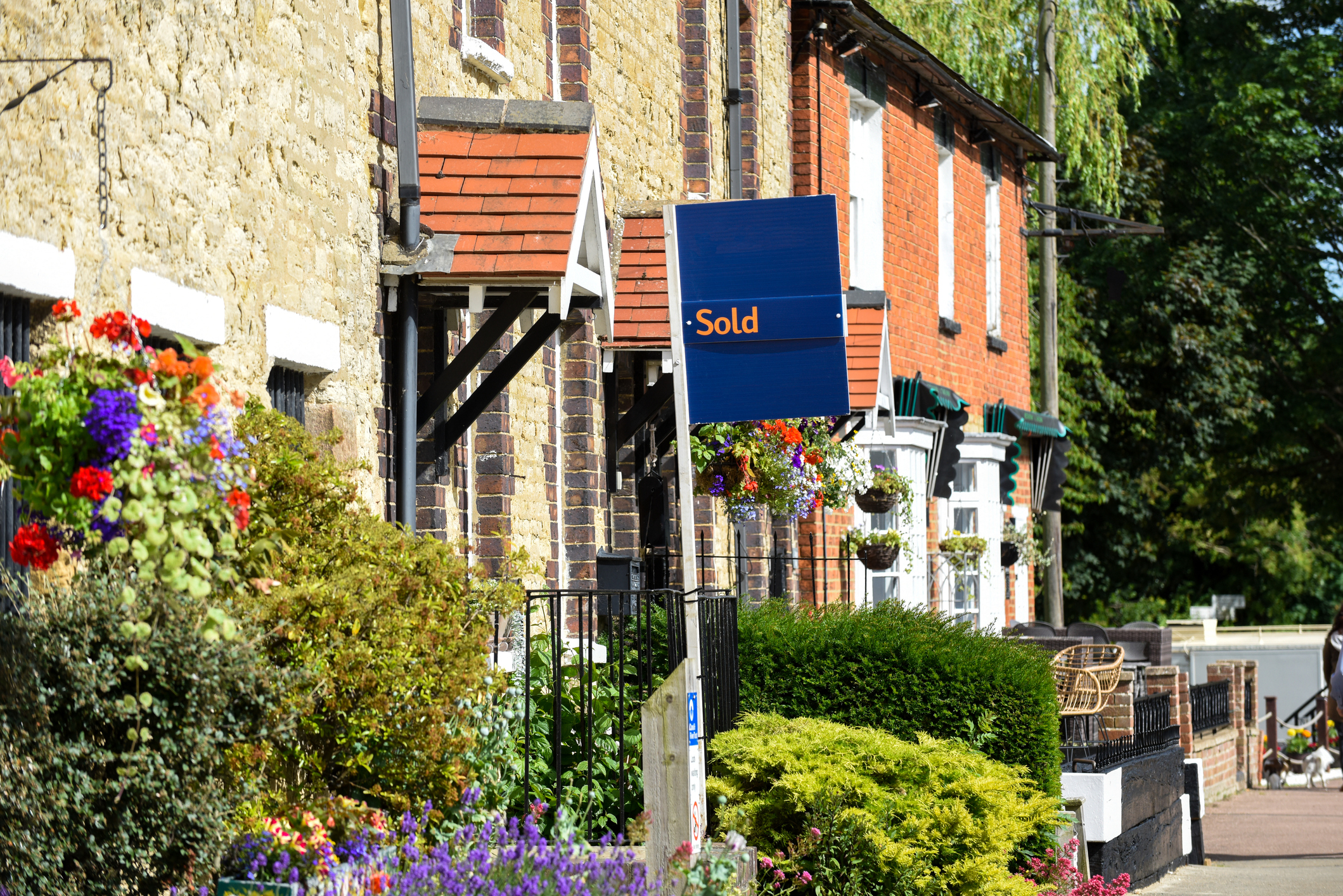House prices in Britain surge to a record high, says Halifax
House prices increased by 0.7% in January, the latest Halifax House Price Index shows


Get the latest financial news, insights and expert analysis from our award-winning MoneyWeek team, to help you understand what really matters when it comes to your finances.
You are now subscribed
Your newsletter sign-up was successful
Want to add more newsletters?

Twice daily
MoneyWeek
Get the latest financial news, insights and expert analysis from our award-winning MoneyWeek team, to help you understand what really matters when it comes to your finances.

Four times a week
Look After My Bills
Sign up to our free money-saving newsletter, filled with the latest news and expert advice to help you find the best tips and deals for managing your bills. Start saving today!
House prices in the UK are now at a record high, with the average price of a property being £299,138, according to Halifax.
This represents growth of 0.7%, more than making up for a 0.2% contraction seen in the market last December.
Although average house prices are at a record high, the annual growth of prices is at a low of 3%, falling from December's high of 3.4%. Growth rates this low have not been seen since last July when prices grew by only 2.4%.
MoneyWeek
Subscribe to MoneyWeek today and get your first six magazine issues absolutely FREE

Sign up to Money Morning
Don't miss the latest investment and personal finances news, market analysis, plus money-saving tips with our free twice-daily newsletter
Don't miss the latest investment and personal finances news, market analysis, plus money-saving tips with our free twice-daily newsletter
The new data also suggests that the hike in property prices may come as demand for homes grows in the short term as buyers try to avoid the increase to stamp duty coming this April.
Amanda Bryden, head of mortgages at Halifax, said: “There’s strong demand for new mortgages and growth in lending. With a stamp duty increase looming, some of this demand may have come from first-time buyers eager to complete transactions before the end of March.”
Nevertheless, Bryden still concedes that “affordability is still a challenge for many would-be buyers”.
The news comes as interest rates were lowered by the Bank of England on 6 February, falling from 4.75% to 4.5%. The new base rate means that the cost of borrowing will become cheaper.
Markets are also pricing in further changes in the base rate this year, with analysts at Capital Economics predicting that interest rates will fall to 3.5% by early 2026.
Holly Tomlinson, financial planner at Quilter, said the base rate cut “should continue to ease affordability and perhaps give more people the impetus to dust off any previously shelved house buying plans”.
She added: “Lenders had already been trimming rates in anticipation of this move, and with expectations of further cuts later in the year more buyers are likely to join back into the market.
“For first-time buyers, this offers a glimmer of hope, as affordability has been stretched to breaking point in recent years [...] the cut to interest rates could provide some much-needed momentum for the market.”
Where in the UK are house prices highest?
House prices differ greatly in each of the UK’s nations. For example, house prices in England are much higher on average than prices in Wales.
Northern Ireland is the nation in the UK with the strongest price growth as houses cost an average of £205,473, growing at an annual rate of 5.9%. Though this figure is still strong, it is much lower than the 7.3% growth that property prices in the country saw last December.
Prices in Wales grew by 3.6% when compared to last year, and houses cost an average of £227,397.
Prices in Scotland also grew in the same time period, albeit at a slower rate of 2.4%. The average price of a home in this part of the UK sits at £210,690.
House prices also diverge within England. The average price of a home in London is £548,288 – almost double the nationwide average – and growing at a rate of 2.8% since last year.
Meanwhile, the English region outside of London with the strongest growth is the North East as prices have ballooned since last year by 5.2%. Here, the average home now costs £178,696.
Get the latest financial news, insights and expert analysis from our award-winning MoneyWeek team, to help you understand what really matters when it comes to your finances.

Daniel is a financial journalist at MoneyWeek, writing about personal finance, economics, property, politics, and investing.
He covers savings, political news and enjoys translating economic data into simple English, and explaining what it means for your wallet.
Daniel joined MoneyWeek in January 2025. He previously worked at The Economist in their Audience team and read history at Emmanuel College, Cambridge, specialising in the history of political thought.
In his free time, he likes reading, walking around Hampstead Heath, and cooking overambitious meals.
-
 Should you buy an active ETF?
Should you buy an active ETF?ETFs are often mischaracterised as passive products, but they can be a convenient way to add active management to your portfolio
-
 Power up your pension before 5 April – easy ways to save before the tax year end
Power up your pension before 5 April – easy ways to save before the tax year endWith the end of the tax year looming, pension savers currently have a window to review and maximise what’s going into their retirement funds – we look at how